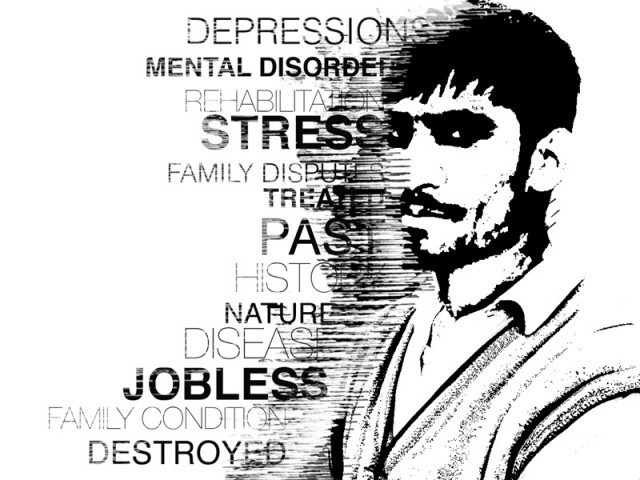Mood and anxiety disorders are prevalent all over the world and they exist in different types and forms. Post traumatic stress disorder (PTSD) is an anxiety disorder that stems from traumatic or life threatening experiences encountered by an individual. The events experienced may vary, from natural disasters and severe automobile accidents to violent personal assaults, life-threatening situations and wars.
The individual initially responds with intense fear, hopelessness and horror and later develops symptoms which are visible when her or she revisits the event through perception or conversation. Patients who suffer from PTSD also have trouble sleeping.
These patients have a lot of anxiety, because of which they cannot relax. They get startled by any situation that reminds them of the traumatic experience and they avoid many social situations out of fear or discomfort. In the US, PTSD clinics have been setup in veterans’ hospitals to treat soldiers who are suffering from the disorder.
During my last trip to Karachi, I had the opportunity to evaluate a number of patients suffering from this disorder. I noticed that they all had been through life threatening experiences or had witnessed similar situations.
One of my old friends told me that he was kidnapped for ransom for several hours. The kidnappers drove him around and then ditched him after taking all his money and his car. Another individual said that he was shot by two people who were trying to snatch his cell phone. Another friend said that he had helped out in rescue missions after the Abbas Town bombing in Karachi earlier this year and he had witnessed horrific scenes.
These stories, unfortunately, are quite common and perhaps every household in Karachi has one such member who has been through a traumatic situation. Some of the patients I saw had strong signs of anxiety and mood disorders as they had no clue why they were not able to sleep, had irritability in their moods and had nightmares and flashbacks.
With the recent increase in violence in Karachi and other parts of the country, people have been through cases where it has cost them their lives and livelihoods. We see the media keeping count on death tolls daily but we have missed out on the human aspect of these tragedies. People that are going through this, and have lived to see another day, are not the same as they were before.
PTSD affects both males and females. Some studies have suggested a higher prevalence in females. Children are also affected by the same disorder; nightmares, flashbacks, and avoidance of thoughts, feelings and conversations associated with the event are common traits for PTSD victims. However, unlike adults, children re-experience the event by repetitive play rather than through perception. Other symptoms are related to negative alterations in cognition and mood like numbness, hyper-arousal, forgetfulness, poor concentration and depression.
Individuals with this ailment may have an increased risk of impulsive behaviour like suicide or homicidal tendencies. There has been an increase in suicides among US soldiers who returned from war and have been diagnosed with PTSD. Victims of sexual assault are at especially high risk for developing mental health problems and ending their lives.
However PTSD, like any other anxiety disorder, is treatable. First and foremost, it is important to initiate assessment and treatment quickly after the traumatic event has taken place, even if the diagnosis of PTSD has not been made yet. A combination of pharmacologic (medication) and non-pharmacologic (therapy) remedies can be adopted in adults, but in children and adolescents psycho-therapeutic intervention is preferred.
Non-pharmacologic methods include group therapy, individual and family therapy and cognitive behavioural therapy (CBT). Medications may be required to control the psychological symptoms. A group of medications known as SSRIs which include medications like Sertraline, Paroxatine, and Fluoxetine are highly effective in PTSD treatment. There are other groups of medications present as well which are equally effective.
Finally when a family member is diagnosed with PTSD, the entire family may be affected. Family members may experience shock, fear, anger, and pain because of their concern for the victim. These families should engage in counselling. Stress and anger management, and couples therapy are also possibilities. Families should try to maintain their outside relationships and pleasurable activities for the individual to be at ease with his/her surroundings.
PTSD is very common in Pakistan and prompt action is required to employ psychologists and psychiatrists to cater for individuals who have been through a tragedy and are now living in constant fear that the event might happen again.
Please contact if you have any questions at mentalhealthdiary786@gmail.com and keep looking for another story from Mental Health Diary.
Bombs, rape and death: Are we suffering from Post Traumatic Stress Disorder?
My friend told me he was kidnapped for ransom for many hours. He suffers tremendously. We all have similar stories.



COMMENTS
Comments are moderated and generally will be posted if they are on-topic and not abusive.
For more information, please see our Comments FAQ